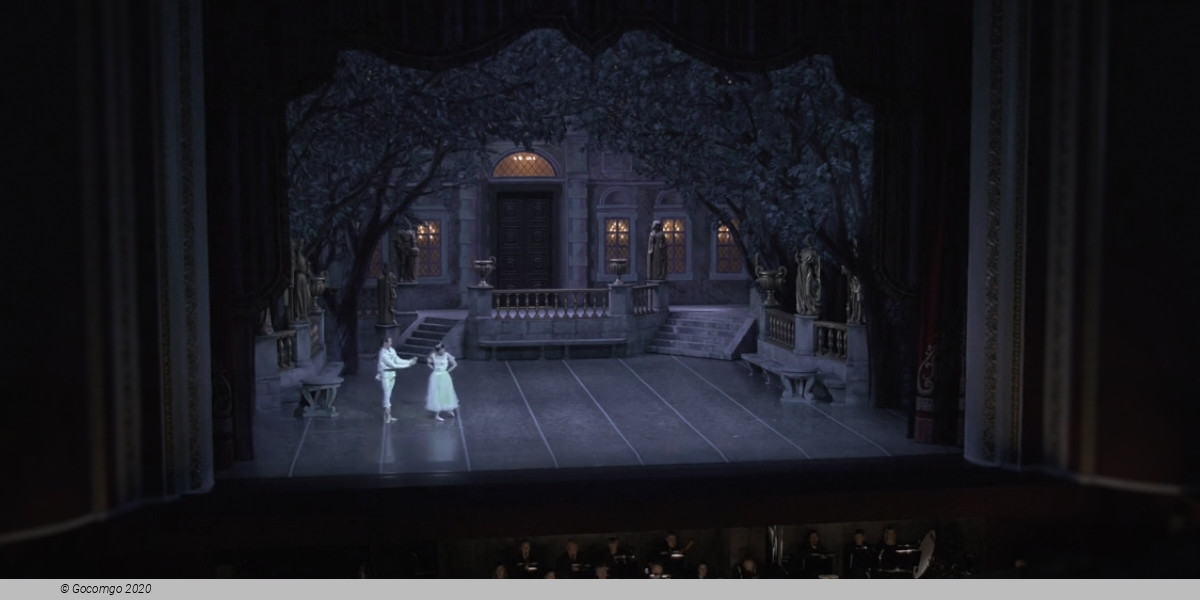Samara Academic Opera and Ballet Theatre (Samara, Russia)
Samara Academic Opera and Ballet Theatre

The Samara Academic Opera and Ballet Theater is a musical theater in Samara. It was founded in 1931, opened the first season with the opera "Boris Godunov" by Modest Mussorgsky. The ballet troupe of the theater was founded in 1933. On February 18, 1982 the theater was awarded the honorary title "academic".
The opening of the theater took place on June 1, 1931 with Mussorgsky's opera Boris Godunov. Its origins were outstanding Russian musicians - a student of Taneyev and Rimsky-Korsakov, conductor and composer Anton Eichenwald, conductor of the Bolshoi Theater Ariy Pazovsky, famous Russian conductor Isidor Zak, director of the Bolshoi Theater Joseph Lapitsky.
Such masters as conductors Savely Bergolts, Lev Ossovsky, director Boris Ryabikin, singers Alexander Dolsky, People's Artist of the Ukrainian SSR Nikolai Poludenny, People's Artist of Russia Viktor Chernomortsev, People's Artist of the RSFSR, future soloist of the Bolshoi Theater, Natalia Boreyko and many others.
The ballet troupe was headed by the soloist of the Mariinsky Theater, a participant in the legendary Diaghilev seasons in Paris, Evgenia Lopukhova. She opened a series of brilliant Petersburg choreographers, who in different years stood at the head of our ballet. The choreographers of the Samara Theater were a talented choreographer, a student of Agrippina Vaganova Natalya Danilova, legendary Petersburg ballerina Alla Shelest, soloist of the Mariinsky Theater Igor Chernyshev, People's Artist of the USSR Nikita Dolgushin.
The theater was rapidly gaining a repertoire. In the productions of the 1930s - opera and ballet classics: operas by Tchaikovsky, Glinka, Rimsky-Korsakov, Borodin, Dargomyzhsky, Rossini, Verdi, Puccini, ballets by Tchaikovsky, Minkus, Adam.
The theater paid much attention to the modern repertoire. In the pre-war period, for the first time in the country, the operas "The Steppe" by A. Eichenwald, "Tanya" by Kreitner, "The Taming of the Shrew" by Shebalin and others were staged. A bold creative experiment, an appeal to unknown or undeservedly forgotten masterpieces, was inherent in the theater in the post-war years. Its posters contain dozens of titles, from the classics of the 18th century ("Medea" by Cherubini, "The Secret Marriage" by Cimarosa) and the little performed works of Russian composers of the 19th century ("Servilia" by Rimsky-Korsakov, "The Enchantress" by Tchaikovsky, "Yolka" by Rebikov) to European avant-garde of the XX century ("Dwarf" by von Zemlinsky, "Les Noces" by Stravinsky, "Arlecchino" by Busoni).
A special page in the life of the theater is co-creation with contemporary Russian authors. Outstanding Russian composers Sergei Slonimsky and Andrei Eshpai, Tikhon Khrennikov and Andrei Petrov entrusted their works to his stage. A significant event far beyond Samara's cultural life was the world premiere of Sergei Slonimsky's opera The Vision of Ivan the Terrible, performed by the great 20th century musician Mstislav Rostropovich in collaboration with outstanding stage masters, director Robert Sturua and artist Georgy Alexi-Meskhishvili.
Kuibyshev artists visited Alma-Ata, where they passed on their experience to the troupe of the recently organized musical theater (now the Abai Kazakh Theater of Opera and Ballet).

